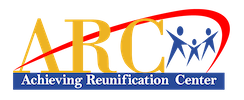Most ARC parents desire to raise healthy children in safe environments, but lack access to concrete social and economic support. Some parents have been hampered by systemic and interpersonal trauma. Behavioral health and substance use issues plague other parents. Too often, ARC parents must deal with many of these issues simultaneously. Multiple stressors, combined with the urgent desire to reunify with their children, lead parents to experience chronic stress–a massive roadblock in their reunification journey.
Overview
Our Solution
To address this, ARC adopted Mobility Mentoring, an evidenced-informed framework to help parents acquire the resources, skills, and sustained behavior changes necessary to attain and preserve their economic independence. Mobility Mentoring® engages parents through a coaching model to develop decision-making and goal-setting skills in key pillar areas:
-
Family Stability
-
Well Being
-
Financial Management
-
Education and Training
The Bridge
ARC practitioners in the role of “coach” use the ARC Bridge as a guide for parents to set goals to create a safe and healthy home environment for their children. Unlike the traditional case management approach where staff advises the parent, the goal-setting process is parent-led, who is the expert on their own lives and required needs. The parent goal plan is action-oriented and demonstrates their ability to successfully address problematic areas that can hinder the safe return of children to their homes(link to GAP). Parents are additionally supported in implementing their goal plan through access to various resources–mental health care, substance use treatment, parenting skills groups, employment, and financial or housing assistance.
The personal plan requires parents to continue taking steps that extend beyond their time at ARC, ensuring that parents are committed to maintaining a healthy mindset that encourages sustainable lifestyle changes, which is critical in minimizing the return to the child welfare system. Regular conversations and check-ins with ARC practitioners facilitate parents’ desired behavior change through collaboration, change talk, and incentives to acknowledge accomplishments.







